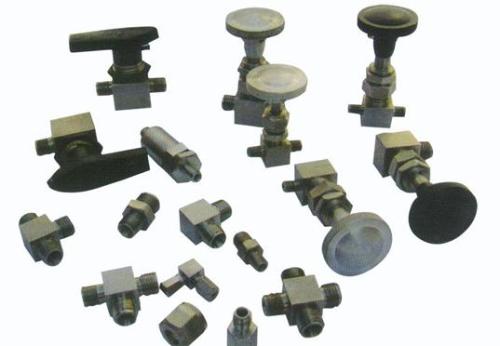
In the recent week, domestic market prices have continued to decline and the decline has been more pronounced. As of May 12, the average price of Ñ„20mm HRB400 rebar was RMB 3,311/t, which was RMB 35/t lower than the previous week. The decline in sheet metal is relatively small. The average price of 4.75mm hot-rolled coils is 3,430 yuan/ton, which is RMB 15/ton lower than the previous week; the average price of 1.0mm cold-rolled coils is RMB 4,197/ton, which is the average price of 20mm plate. It was 3,500 yuan/ton, which was a drop of 8 yuan/ton and 12 yuan/ton respectively from the previous week.
In response to the current situation, the state has introduced policies to deal with the steel surplus. Such as subsidizing SMEs, implementing differential electricity prices, etc. The current production volume of iron and steel enterprises has remained high and supply pressure cannot be alleviated. The large volume of production and less market demand led to a serious surplus of steel and a drop in prices.
The prices of major raw materials continue to fall. The price of imported ore recently fell to the lowest point in nearly 20 months. Relevant statistics show that as of May 12th, 62.5% grade Newman's powder ore at Qingdao Port was offered at 710 yuan/ton, which was a drop of 20 yuan/ton compared with the previous week. It is expected that the price of imported ore will continue to remain weak in the later period.
The price of metallurgical coke keeps steady. Given that steel prices continue to remain depressed, it is difficult to see the price of coke going upward. As of May 12, the first-grade metallurgical coke in Changzhi, Shanxi Province was quoted at 1,060 yuan/ton, unchanged from the previous week.
Domestic ore prices have also been lowered simultaneously. As of May 12, the price of 66% Fe fine powder in Hebei Qian'an was RMB 930/ton, which was RMB 20/ton lower than the previous week. The weak trend of imported mines has a great impact on domestic ore prices. In addition, the previous sharp drop in the price of slabs has exerted greater pressure on domestic ore prices.
Businesses generally bearish on the market, and the daily turnover of ordinary plate merchants is in the order of hundreds of tons, and some large accounts can occasionally reach thousands of tons, but overall shipments are kept at a relatively low level. Recently, major steel mills such as Baosteel and Shagang have successively lowered the ex-factory price of the new phase. Steel mills are cautious about the market outlook. This also has a certain negative impact on the market's business confidence in the front line, and businesses are generally bearish.
Thermal spray wires are used in thermal spraying processes, which involve the application of a coating material onto a surface. These wires are specifically designed to be melted and sprayed onto a substrate to create a protective or functional coating.
Thermal spray wires are typically made from materials such as metals, alloys, or ceramics. They are available in various diameters and compositions to suit different applications and requirements. The wire is fed into a thermal spray gun, where it is heated to a molten state and propelled onto the surface being coated.
The thermal spray process offers several advantages, including the ability to apply coatings with excellent adhesion, corrosion resistance, wear resistance, and thermal insulation properties. It is commonly used in industries such as aerospace, automotive, oil and gas, power generation, and manufacturing.
Some common types of thermal spray wires include:
1. Metal wires: These wires are made from materials like aluminum, zinc, stainless steel, nickel, and copper. They are used for applications such as corrosion protection, thermal barrier coatings, and wear resistance.
2. Alloy wires: These wires are composed of a combination of different metals or metal alloys. They are used to create coatings with specific properties, such as high temperature resistance, electrical conductivity, or improved mechanical strength.
3. Ceramic wires: These wires are made from ceramic materials such as aluminum oxide, zirconia, or tungsten carbide. They are used for applications requiring high wear resistance, thermal insulation, or electrical insulation properties.
Overall, thermal spray wires play a crucial role in the thermal spraying process, enabling the creation of high-performance coatings for a wide range of industrial applications.
Spray Wires,Arc Spray Coating,Thermal Arc Spray,Thermal Spray Wire
Luoyang Golden Egret Geotools Co., Ltd , https://www.hvofpowders.com